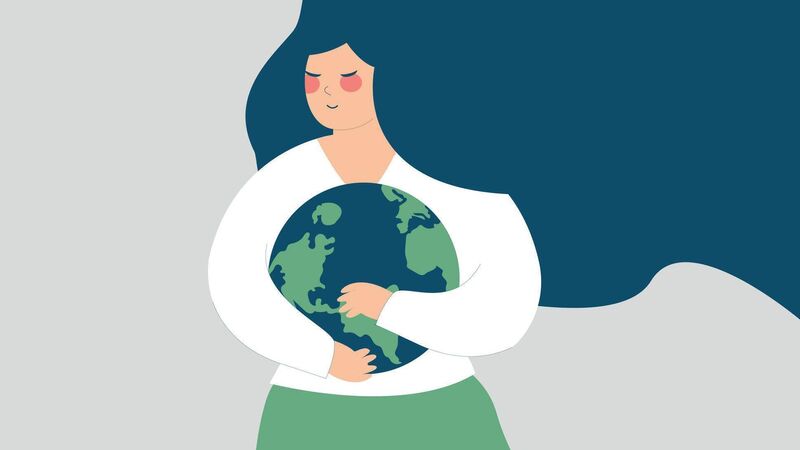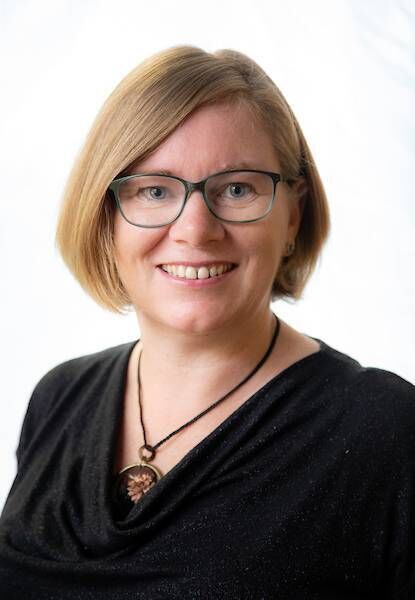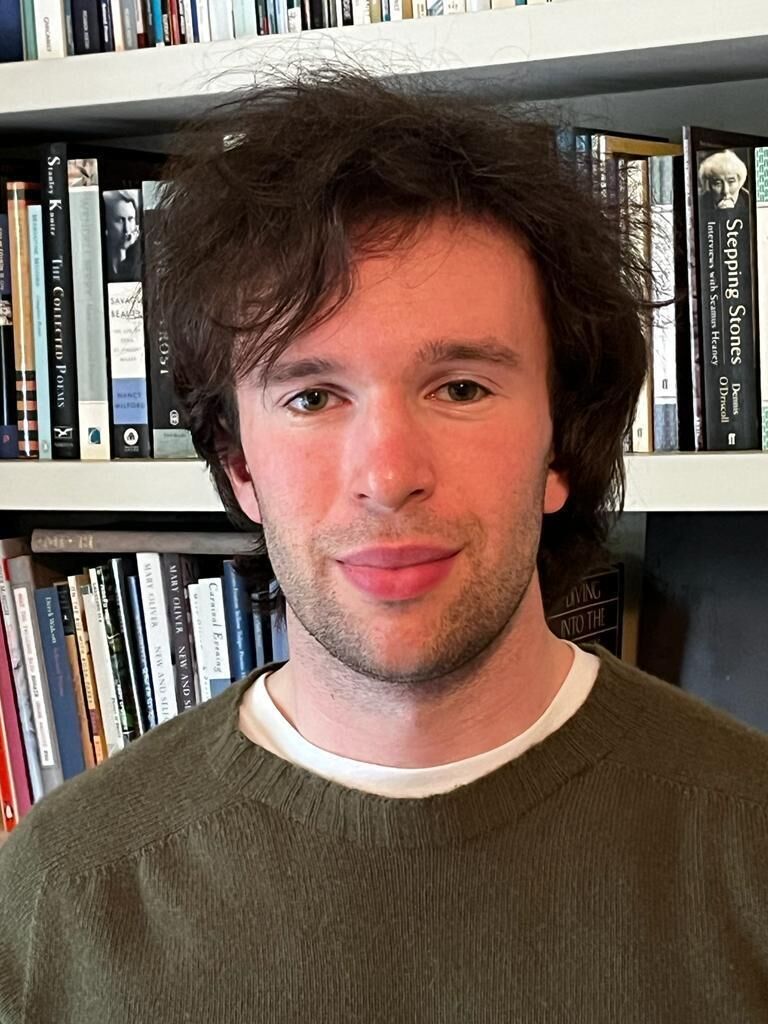‘I think of my carbon footprint’: Why we won’t have kids because of climate change

Pic: iStock
WHEN Kalyn, a Carlow-based woman in her 30s, looks at the climate projections for 2050, she can’t feel secure about her own future, let alone that of any potential child she might have.
“Am I going to bring a child into a world where they’d have a harder time than me? How can I equip them for that?
“If I, in my mid-30s, have a lot of insecurity around what my future might look like, I can’t viably say I have something for a child to inherit. As a parent, hoping the best for my child, I don’t think I could give them that security.”
Kalyn isn’t alone among younger generations in grappling with the question of whether reproducing in the face of the climate crisis is ethical or even viable. In the US, one in four childless adults told a Morning Consult poll in 2020 that climate change was a factor in their reproductive choices — 11% said it was a “major reason” for not having children.
Two years ago, Morgan Stanley advised investors that the decision “to not have children owing to fears over climate change is growing and impacting fertility rates quicker than any preceding trend in the field of fertility decline”. And a 2021 Pew Research Center survey found 5% of childless adults cited environmental reasons, including climate change, for not having children.
CLIMATE & SUSTAINABILITY HUB
Carmel Hannan from the Department of Sociology at the University of Limerick points to a UK-based study published last November that asked if environmental concerns are deterring people from having children. Hannan says those committed to a green lifestyle were found to be less likely to go on to have offspring. “In particular, a person entirely unconcerned about environmental behaviour is approximately 60% more likely to go on to have a child when compared to a deeply committed environmentalist.”
Another study, titled No future, no kids–no kids, no future? involved interviews with 24 New Zealand and Australia-based 18- to 35-year-olds and explored motivations to remain child-free in times of climate change. “Over-consumption, over-population, uncertainty about the future, the changing and worsening of the environment were all mentioned by the group,” says Hannan.
In Carlow, Kalyn says her decision to remain child-free evolved over the years. “Some key decisions in my life have been climate-driven, such as what I eat and whether I have children. During my university years, I became very aware of food insecurity, of people who don’t have their needs met. It seemed less and less viable to bring another mouth to feed into a world where so many lacked their basic needs. So as a result, I started thinking about adopting.”
Kalyn has ultimately decided to stay child-free.

Concern about carbon footprint
What’s making young people around the world think twice about having children isn’t just the extreme weather events and knock-on effects their future children may have to endure — but also the fear that a potential child would add to global warming. A 2017-published Swedish study considered the potential of a range of individual lifestyle choices to reduce greenhouse gas emissions in developed countries. The researchers reckoned that having one fewer child would reduce CO2 emissions by 58t for each year of a parent’s life.
“I think of my carbon footprint, how it would grow exponentially if I bring a child into the world. It makes more sense for me to invest in my friendships, in the little ones who are here and helping them,” says Kalyn, who — career-wise — is “moving more and more into pro-environmental concerns”.
Actor Miley Cyrus told Elle magazine in 2019 that millennials don’t want to reproduce because “we know the Earth can’t handle it”. She was even more personally forthright: “Until I feel my kid would live on an Earth with fish in the water, I’m not bringing in another person to deal with that.”
Since her comments, the parenthood-or-planet question has become more present in the mainstream consciousness.
Limerick-based counselling psychotherapist and creator of podcast Are Kids for Me?Margaret O’Connor has a speciality in helping people decide whether to have children. She did some small-scale research in 2017 that explored how women made such decisions.
“Environmental factors weren’t named at all,” she says. But the conversation has evolved since then. “There’s definitely awareness now. Covid had a lot to do with it. ‘Environmental reasons’ and ‘the state of the world’ are phrases I hear now.”
Among her clients, environmental concerns haven’t been the dominant factor in decisions around not having children — but climate/environment “is in the mix”, she says. “Clients have asked, ‘Is it the right thing to bring a child into this world? Is it responsible? This is something I want, but is it the right or fair thing to do?’
“They ask if they have a child, what will the world be like for that child when they’re an adult? Themselves, the world, the child — people really look at it from every angle.”
Child-free by choice
Niamh Madden set up a Childfree by Choice sisterhood in 2019 as a “warm, non-judgemental space” where women could talk about their decision to not have children. It has more than 1,000 members, most based in Ireland. Around this time, Madden also did a survey, which attracted 300 respondents, asking women what informed their decision to stay childfree.
“Three per cent said it was primarily for environmental reasons. For most women in our group, it doesn’t seem to be the reason — or at least not the only reason.”
But the environment does come up in conversation at meet-up events, like brunches or walks. “And then it’s that society has become very consumerist, that we have an over-populated planet, that we don’t need another human to add to the planet,” says Madden, who has seen climate cited almost as a secondary reason for remaining childfree. “Like ‘this is a good thing we’re doing — it’s having a good effect’.”
Danielle, a 41-year-old Dubliner, has for a long time felt ambivalent about having a child. “I never really had that urge. Sometimes I’ve felt conflicted — there’s a lot of pressure when friends and family start having children, and it seems like just something to do.”
Working “in the climate/nature space” for 15 years now, Danielle’s previous career as a journalist meant she travelled a lot, and seeing impoverished children in developing countries, she began considering her childfree decision through the poverty lens.
“I thought: The planet’s resources are finite and there are so many children already here who are sadly in need of a home. I was of the opinion — and still am — that I wouldn’t need to be a biological mother. I could be an adoptive mum and that would help the planet because I wouldn’t be creating another child for finite resources.
“I don’t see the need for me to have a biological child. I can love a child that isn’t of my DNA and that’s where I’m at,” Danielle says.
Her child-free status frees her up, she says, to be active in the climate area, where people who are parents mightn’t be able to because of their responsibilities.
Danielle recommends being upfront with a partner as to whether or not you want to have children. “Luckily for me, it hasn’t been much of an issue,” she explains. “But I have female friends who were very clear they didn’t want to have children. The relationship progressed, they got married, bought a house, and the guy turned around and asked, ‘When are we going to have children?’ He thought she’d change her mind, that ‘all women want children’. “
Even when somebody opts out of procreating for climate reasons, Danielle says there can be shades to the decision, depending on background. “Among my US friends, it’s ‘I’m not going to have a child because the world’s ending’. Whereas I’ve heard women from India say it’s because of resources — we only have so many resources and if they want a child they can adopt.”
She has also had conversations where the child-free choice is causing huge sadness. “I know a woman in her 20s who sees herself as having to make an awful lot of sacrifices for the planet — one of those is not having a child. I think that perspective is very common among her age group.”

From the younger generation
Two months ago, 20-year-old Jack Cantillon, a student of philosophy, politics, and economics at Trinity College Dublin, wrote in Trinity News about “the ethical dilemmas that arise when it comes to reproducing amid a climate crisis”.
“Environmental issues are definitely on the minds of all young people,” he tells the Irish Examiner.
But environmental childlessness, he says, is more of a niche area within the green movement, though he reports that The Hist, Trinity College Dublin’s debating society, debated the topic recently.
“Some people talk about it a lot and say they won’t have children for environmental reasons — but that could change as they get older. I’ve one friend who says he’d prefer to adopt, so as not to generate additional consumption.”
A counterpoint to the parenthood-or-planet question is the idea that it’s consumption levels — not population — that’s driving climate change. Voice of Irish Concern for the Environment (Voice) chief executive says: “Western consumption releases more greenhouse gases than increased populations in the developing world.”
But Hannan believes young people will increasingly factor in the climate when making reproduction decisions. “We’re not seeing extreme weather conditions in Ireland yet, but people want to know the circumstances in which they’ll be bringing up children. And this will grow as concerns about the environment become more widespread.”
In Dublin, Jack Cantillon looks forward to having children one day. He dreams of a net-zero society where the child-or-planet question doesn’t even arise.
“I hope we get to a place where over-consumption falls so that having a child is not an issue.”
CLIMATE & SUSTAINABILITY HUB
CONNECT WITH US TODAY
Be the first to know the latest news and updates





